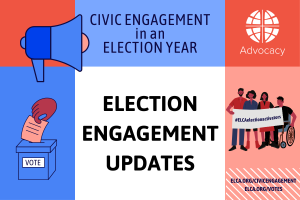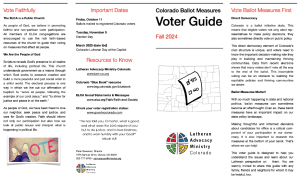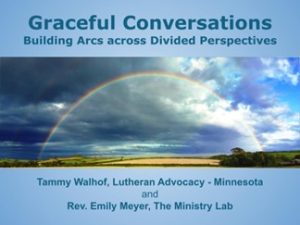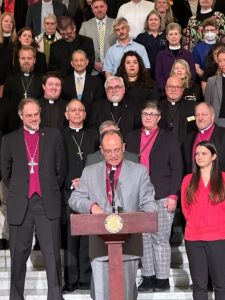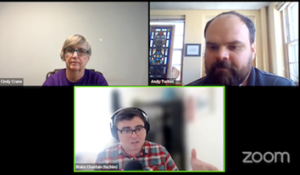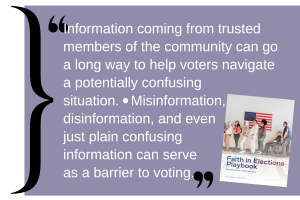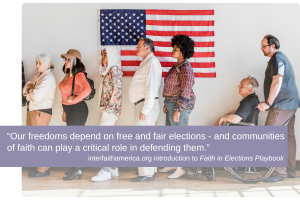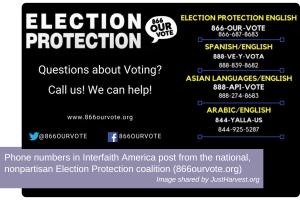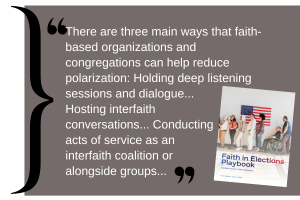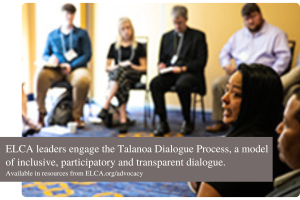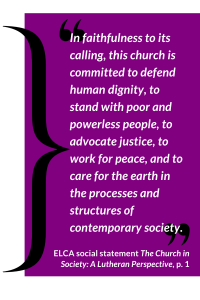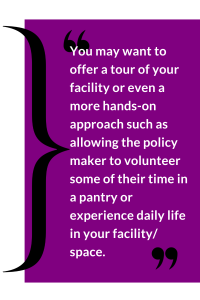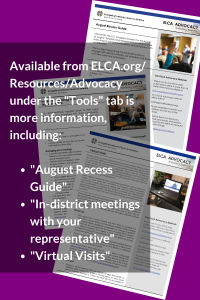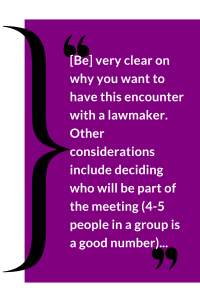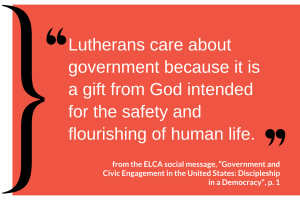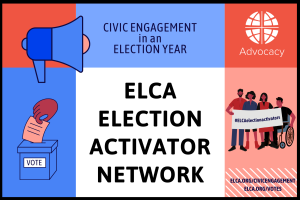Even as National Election Day on Nov. 5, 2024, approaches and beyond, our congregations, synods, rostered leaders, ELCA-affiliated state public policy offices and members are guided by faith to acts of non-partisan civic engagement. Thank you for sharing your local activity in previous months with others through this ELCA Advocacy Blog post.
There are still new things to highlight and refresh.
RESOURCE HIGHLIGHTS | HEIGHTENED CONCERNS | FAITHFUL INSISTENCE | ACTIVATORS
RESOURCE HIGHLIGHTS
📌 “Sacred Crossroads: The Intersection of Faith and Immigration in the 2024 Election” was made available by ELCA AMMPARO in October 2024. Use this nonpartisan resource to explore key facts about immigration (one of the most important issues informing the upcoming U.S. national election) and reflect on how Christian values compel us to pursue justice, help the oppressed, promote human dignity and human flourishing, and pray for a government that serves all neighbors.
📌 The ELCA maintains a new resource page at ELCA.org/civicengagement, “Faith in Action: Our Call to Civic Engagement During the 2024 Election,” which includes videos from the Rev. Elizabeth Eaton, ELCA presiding bishop; Living Lutheran articles; ELCA advocacy resources and more.
📌 “Guía de compromiso cívico de la ELCA” is available – the “ELCA Civic Engagement Guide” in Spanish.
HEIGHTENED CONCERNS
In the closing days of the election season through the presidential inauguration, anxiety surfaces frequently around possible reactions to the presidential election outcome. As spoken in the video ELCA Advocacy: Set free to do justice, “Our commitment to every human being and [creation] that Jesus cared about doesn’t sway with one election or another. Those values remain constant.” Yet facing concerns may be happening in your locality.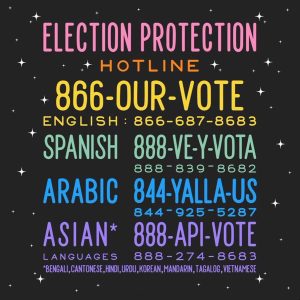
📌 The Episcopal Church has prepared an “Addressing Political Violence” page, which encourages: “we can prepare by being familiar with the threats of political violence, practicing de-escalation in tense moments, and having a response ready to share with your community if political violence continues.”
📌 An “Elections Dashboard” is maintained by the organization National Task Force on Election Crises which compiles election-related developments. Clicking on your state or searching other keywords can be a helpful, sourced current information.
📌 LifeAfterHate.org offers resources affiliated with envisioning a safer society in which compassion and accountability enable change.
📌 In multiple languages, Election Protection hotlines are staffed through the national, nonpartisan Election Protection coalition information and assistance at all stages of voting – from registration to absentee and early voting, to casting a vote at the polls, to overcoming obstacles to their participation.
FAITHFUL INSISTENCE
📌 “Worship Resources for a National Election” includes new elements from ELCA Worship.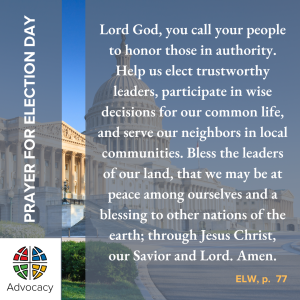
📌 Ideas as we come together in prayer are available from many sources, including “Election Season Prayers” from the Kansas Interfaith Action in the ELCA-affiliated state public policy office network.
📌 With proximity to the Capitol in Washington, D.C. and a faithful focus, the ELCA Metro D.C. Synod held a Pre-election Prayer Service at Lutheran Church of the Reformation. Many ELCA congregations are hosting vigils and similar reflection times.
📌 Commitment to see one another as neighbors include member or faith community initiatives like Love Anyway Feasts and stepping forward with aims at “Addressing Polarization and Building Cohesion in Your Community” like those described in the blog post among others.
ACTIVATORS
Thank you to the nearly 300 of us who were part of the ELCA Election Activator Network, including many who participated in support and resourcing non-partisan civic engagement as people of faith. As Activators, you have made a difference in your localities and inspired others – and will continue to do so.
🔎 Some of the resource which had previously been referenced include the “Resources & Reflections” below.
RESOURCES & REFLECTIONS
“Creating Space for Conversations: Resources and Inspirations for Reaching Common Ground“ – ELCA Grand Canyon Synod (shared 5/21/24)
🔎In response to the turbulent times we face and the heartbreaking events that have transpired recently, we are creating this special section on our site devoted to promoting understanding, dialogue, and unit. Whether you are seeking guidance on how to approach sensitive topics, or looking for ways to connect with others across divides, this page will be your go-to source.
“Fair Wisconsin Maps“ – Lutheran Office for Public Policy in Wisconsin (recorded 4/6/24)
🔎 What the heck just happened with Wisconsin maps? was among questions posed in this “Wednesday Noon Live” interview in a state with maps WUWM reported were “recognized as among the most gerrymandered in the country.”
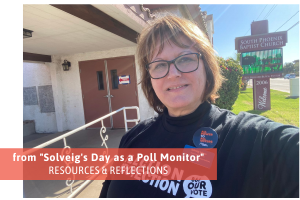 “Solveig’s Day as a Poll Monitor” – Lutheran Advocacy Ministry Arizona – authored by Solveig Muus, director (originally posted 3/19/24)
“Solveig’s Day as a Poll Monitor” – Lutheran Advocacy Ministry Arizona – authored by Solveig Muus, director (originally posted 3/19/24)
🔎 “I was to observe whether the polls opened on time, whether there was adequate parking, adequate signage, easy access for voters with disabilities, ensure voters people are receiving provisional ballots if indicated, ensure any activists stayed outside the 75-foot perimeter, answer questions, etc. I received another quizzical look…”
“Autumn’s Day as a Greeter” – Lutheran Advocacy Ministry Arizona – authored by Autumn Byars, ELCA Hunger Advocacy Fellow (originally posted 3/19/24)
🔎“My job today was not to proselytize or advertise our services, but by volunteering at our welcome cart and offering refreshments to all our voters, I had the privilege of representing our congregation to the outside world— which is always a good opportunity.”
“In a pivotal state, ways to serve our neighbor in an election year“ – Lutheran Advocacy Ministry in Pennsylvania (originally posted 2/29/24)
🔎Facing “overwhelmed or inexperienced county elections officials” in the state, through love of neighbors we can “step up… We encourage anyone of good will, but especially our eligible teens and young adults, to get trained and serve as official poll workers on Election Day.” Offering our facilities as polling sites if needed in its neighborhood also “can be a big service to our communities.”
BLOG PAGE LAUNCH DATE: Mar. 15, 2024

